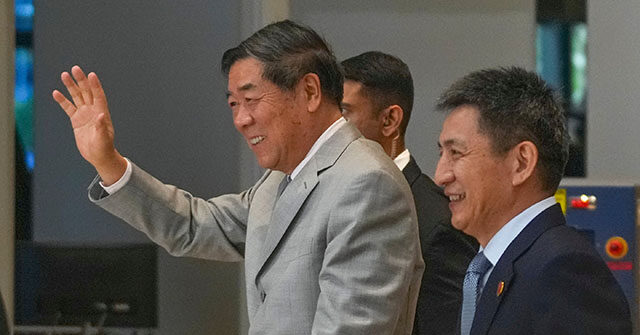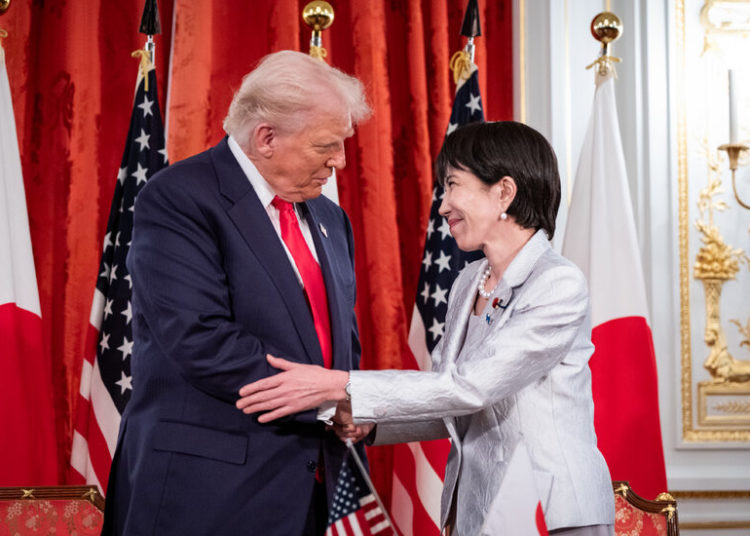Chinese state media ran a few victory laps on Sunday and Monday after news that U.S. and Chinese negotiators reached a provisional trade agreement after two days of talks in Kuala Lumpur, Malaysia.
“The essence of China-US economic and trade relations is mutual benefit and win-win results, and the two countries gain from cooperation and lose from confrontation,” Chinese Vice Premier He Lifeng said after participating in the Kuala Lumpur talks on Saturday and Sunday.
The U.S. team included Treasury Secretary Scott Bessent and U.S. Trade Representative (USTR) Jamieson Greer. Bessent said on Sunday that a “framework” was established for the scheduled meeting between President Donald Trump and Chinese dictator Xi Jinping in South Korea on Thursday.
“I’m also anticipating that we will get some kind of a deferral on the rare earth export controls that the Chinese had discussed,” Bessent said.
China has a near-monopoly on mining and refining rare earths and other critical minerals, a stranglehold Beijing is not shy about using as leverage for its political ends. China also uses its control over the mineral supply to manipulate prices and block efforts from other countries to break its monopoly.
China’s state-run Global Times on Sunday applauded the Kuala Lumpur talks as “candid, in-depth and constructive exchanges of views on important trade and economic issues of mutual concerns,” including tariffs, shipbuilding, fentanyl trafficking, agriculture, and export controls.
The Global Times quoted Vice Premier He describing the talks as a triumph for “principles of mutual respect, peaceful coexistence and win-win cooperation, conduct dialogue and consultation on equal footing” – a goulash of buzzwords that China likes to use when describing its approach to trade issues.
The Chinese paper made it sound like He was the dominant voice in the talks, “urging” the U.S. to “work with China in the same direction” and “build mutual trust,” while Bessent and his team expressed their appreciation for the value of the bilateral trade relationship between America and China.
The Global Times threw in a golf clap for the U.S. team, which “expressed its position in a tough manner,” while the “Chinese side remained resolute in safeguarding its interests.”
On Monday, the Global Times ran an editorial praising the importance of “consensus” and reiterating comments from Chinese officials that Beijing does not want to see “turbulence” in the bilateral trade relationship.
“Since May this year, Chinese and U.S. economic and trade teams have held five rounds of talks. Although there have been twists and turns, there has been an overall trend of seeking progress and breakthroughs. This fully demonstrates that, on the basis of mutual respect and equal consultation, the two countries are fully capable of finding ways to address each other’s concerns,” the editors wrote.
The Global Times was very excited that Bessent’s team praised America’s trade with China as “the most influential bilateral relationship in the world” and pledged to “work with China in the spirit of equality and respect to properly address differences, deepen cooperation and promote shared development.” Such language did not appear in U.S. statements after the previous four rounds of trade talks with China.
“Trade wars and tariff wars do not serve the interests of either side. For the differences and frictions that arise in economic and trade cooperation, China and the U.S. should be able to negotiate solutions based on equality, respect, and mutual benefit,” the Global Times concluded.
Absent from these celebratory articles was any firm commitment from China to address complaints from the United States about Beijing’s unfair and predatory trade practices.
As all of the weekend’s Chinese media articles admitted, everything said and done in Kuala Lumpur was a prologue for the discussion Trump and Xi will have in South Korea. China is signaling that it expects Trump to be happy with the groundwork that has been laid, but the president will expect more than platitudes about “turbulence” and “win-win cooperation” from Xi.
The post China Takes Victory Lap with Provisional Trade Deal appeared first on Breitbart.




